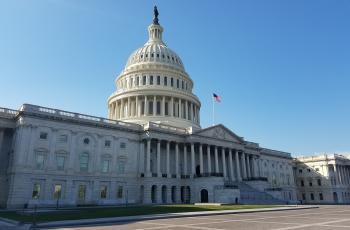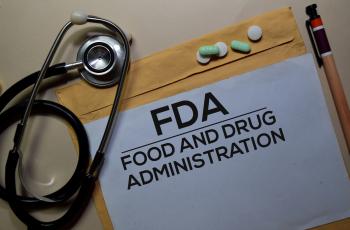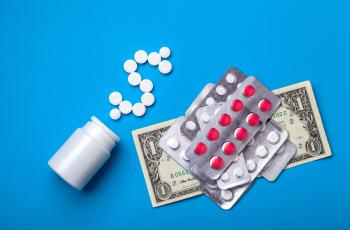Learning From Covid-19 – A Modern Preventable Pandemic
Like COVID-19, diabetes is a disease that has threatened the health of millions in the US. A new peer-reviewed paper sponsored by diaTribe outlines some lessons learned during the COVID-19 pandemic that can inform policy actions to better prevent and treat diabetes.
The COVID-19 pandemic has forced us to approach health as a collective effort. Individuals wear masks, social distance, and they get vaccines not only to avoid contracting the disease but also to avoid spreading it to others.
In contrast, diabetes is often viewed as an individual burden. Millions of people in the US are living with diabetes, yet there is not a strong collective effort to prevent diabetes and to support those who have it. Our experiences during the COVID-19 pandemic can help inform a better, more collective approach to diabetes prevention, awareness, and treatment.
diaTribe sponsored a recently published paper titled “The Type 2 Diabetes ‘Modern Preventable Pandemic’ and Replicable Lessons from the COVID-19 Crisis.” The paper frames type 2 diabetes as an underestimated modern pandemic and identifies ways we can apply lessons from COVID-19 to better prevent and treat diabetes.
Though the political and social response to COVID-19 has been imperfect and has been a failure in many ways, given the countless losses we have faced, Michael Singer, the paper’s lead author and an advisor to diaTribe, said, “The good parts of it can be used to bring forth a lot of change that the world of diabetes needs.”
The paper was co-authored by Kevin Dorrance, Monica Oxenreiter, Karena Yan, and Kelly Close.
What is a pandemic?
Many people associate this term with infectious diseases like COVID-19 that spread rapidly throughout populations. While you might think of a “pandemic” as being specific to infectious diseases, it is defined as anything that occurs over a wide geographic area and impacts a significant proportion of the population. In reference to diabetes, Singer said, “To frame it as a pandemic is actually a bit novel because it’s not viral…When it’s roughly one in ten people that will have some touch point with diabetes directly, that is a pandemic, and it is growing at significant rates.”
Over 34 million people in the US and 537 million people in the world have diabetes. The global prevalence is predicted to increase to 783 million by 2045. Though the COVID-19 pandemic has grown much more rapidly than diabetes, they are both pandemics that have impacted large proportions of the world’s population.
What can we learn from COVID-19?
The government response to the COVID-19 crisis, though flawed, has been an example of what’s possible when we commit to preventing and treating disease. The authors argue that our investment in COVID-19 prevention, awareness, and treatment should be applied to diabetes to mitigate the growing type 2 pandemic. “The growing global burden of type 2 diabetes as a modern preventable pandemic,” they wrote, “warrants a proportional call to action.”
The paper outlines the following policy recommendations inspired by the COVID-19 response:
- Improve diabetes diagnostics/testing led by the federal government.
- Concentrate on diabetes prevention programs led by the federal government.
- Equip primary care providers with the tools to better prevent and treat T2D.
- Make sure providers have access to telemedicine and are appropriately reimbursed for prevention, diagnosis, and disease management of T2D.
- Improve awareness, access, and coverage of safe and effective T2D therapies.
- Increase access to affordable insulin.
- Improve government-research-industry collaboration on diabetes prevention, diagnosis, treatment, and management efforts.
- Increase public awareness of the T2D “Modern Preventable Pandemic” and its health, social, and economic impacts.
- Improve US leadership to address and defeat the diabetes pandemic globally.
“As the COVID-19 pandemic has demonstrated, a coordinated national effort can reduce substantial disease spread to the level of pandemic,” the paper explains. “Mobilization of similar focus, speed, and coordination is needed for the T2D Modern Preventable Pandemic.”
Though the paper’s recommendations are directed toward government, industry, and research institutions, lessons from COVID-19 go beyond policy. All of us can apply experiences from this pandemic to help prevent, treat, and raise awareness about T2D in our daily lives.
Singer encouraged people to view the diabetes pandemic as “a personal call to action” to “understand the importance of being proactive personally, just as you are with COVID-19.”
The COVID-19 pandemic will continue to grow if only those with the disease are working to address it. The same goes for diabetes, he said. If everyone is committed to increasing diabetes awareness and to taking action to prevent it, just as it has been done for COVID-19, we can more effectively mitigate this modern preventable pandemic and reduce the stigma that those with diabetes often face. Viewing diabetes as a collective effort rather than an individual burden will help those with the disease live happier, healthier lives.


